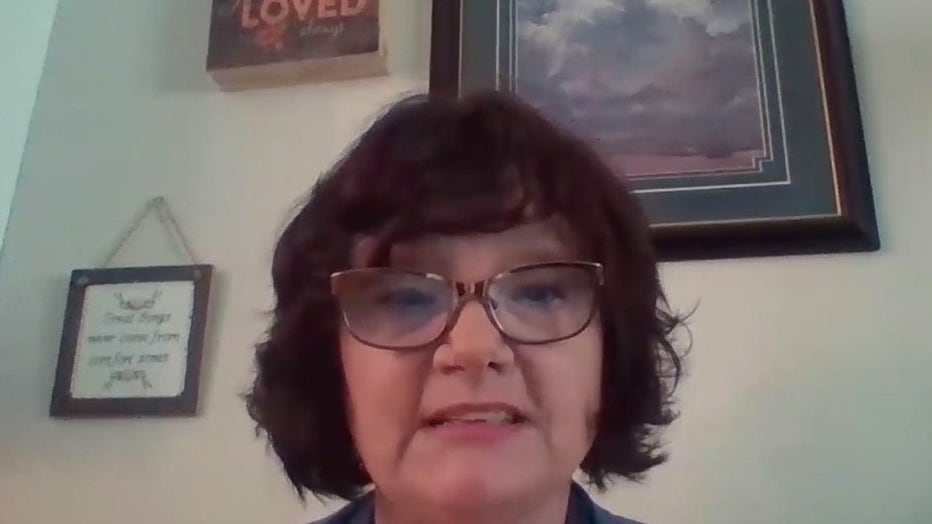Chandler couple describes experience with monoclonal antibody treatment for COVID-19

Chandler woman received monoclonal antibody treatment for COVID-19, but husband didn't
The monoclonal antibody treatment involves infusing a lab-designed antibody into the patient's vein, which would in turn attack the COVID virus. While the woman has recovered, her husband is now in hospice care. FOX 10's Nicole Garcia reports.
CHANDLER, Ariz. - The monoclonal antibody treatment is widely used to help some COVID-19 patients recover from the virus - and for one family in Chandler, it's caused relief, as well as heartache.
Stephanie Nielsen and her husband both became sick with the virus at the same time. A doctor at an emergency room in Chandler recommended monoclonal antibody treatment for Stephanie, saying she was eligible to receive the treatment because she met the criteria.
"I'm 53 with one criteria, which is overweight," said Stephanie.
The treatment was cleared for use by the FDA to treat mild to moderate COVID-19 symptoms in patients 12 years and older and who are at high risk of developing more severe symptoms. Some of the criteria that would make a patient eligible include obesity, diabetes, pregnancy and heart disease.
"You must be considered high risk, which can include anyone over the age of 65, those who are pregnant, and those with obesity, diabetes and hypertension," said Dr. Marjorie Bessel with Banner Health.
Banner Health officials say they have administered the treatment to more than 5,000 patients so far in Arizona. It involves infusing a lab-designed antibody into the patient's vein, which would in turn attack the COVID virus.
Stephanie Nielsen says she felt better within 24 hours of receiving the treatment, the same treatment ex-President Donald Trump received in October 2020.

Chandler resident Stephanie Nielsen spoke to FOX 10 over a Zoom call.
"I woke up about 8:00 the next morning, and I was already feeling better," said Stephanie.
Stephanie's husband, who was sicker, did not qualify.
"I told them that there was a legitimate reason that he should have the antibodies, and their answer to me was he doesn’t fit the criteria," said Stephanie. "I turn the corner. My husband went downhill really quick."
Stephanie's husband is now on hospice.
"I can take a glance at my husband and wonder, if he'd had the antibodies, could it have helped him?" said Nielsen.
In Florida, Stephanie said about 40,000 COVID-19 patients have received the treatment.
This week, Gov. Doug Ducey announced that hospitals providing the monoclonal antibody treatment are eligible for a portion of $60 million in federal cash.
Arizona reported 3,802 new confirmed cases of COVID-19 and 80 deaths on Sept. 3.
The state Department of Health Services released its latest figures Friday. The data since the pandemic started now stands at 1,023,935 cases and 18,959 deaths.
The number of virus-related hospitalizations was 2,051 as of Thursday, a slight dip from a day earlier.
MORE: Coronavirus in Arizona: Latest case numbers
Public health experts and leaders of major hospital systems fear the upcoming Labor Day weekend could further drive up virus surges with people wanting to get together in large groups.
The U.S. Centers for Disease Control and Prevention’s director has advised that unvaccinated people should not travel during the holiday weekend.
In Arizona, more than 4 million people — or 56.2% of the eligible population — have gotten at least one vaccine dose. More than 3.5 million people are fully vaccinated.
Continuing Coverage
- Maricopa County approves incentives for its employees who get vaccinated
- Events in Valley are being postponed or cancelled due to ongoing effects from COVID-19 pandemic
- Arizona Gov. to allocate $60M to hospitals that offer COVID-19 vaccines, antibody treatments

